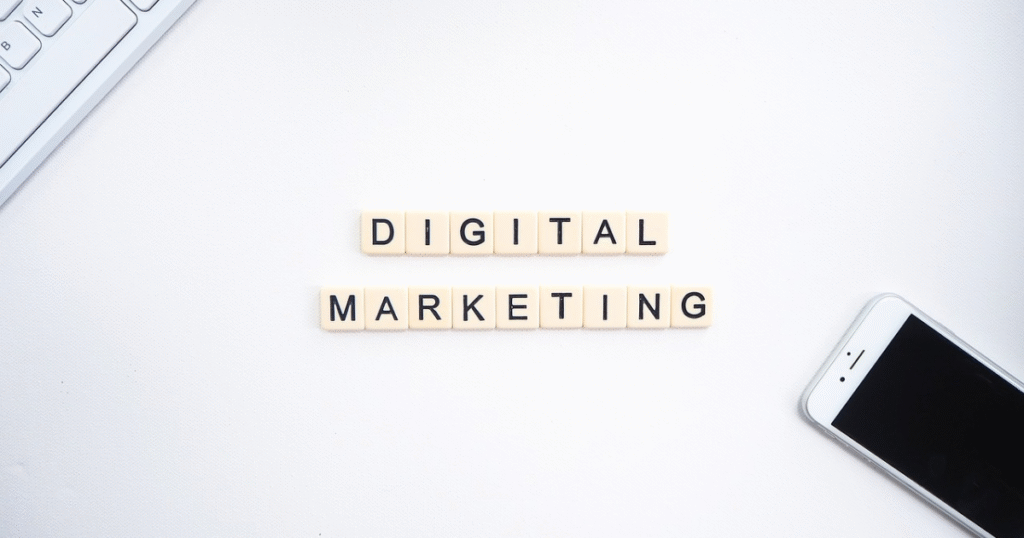What is Digital Marketing? Benefits of Digital Marketing

Introduction In today’s fast-paced digital era, marketing has evolved far beyond traditional strategies. Gone are the days when businesses relied only on TV ads, billboards, or printed flyers. Digital marketing has emerged as the go-to method for businesses to reach their target audience, boost brand awareness, and drive measurable growth. But what exactly is digital marketing, and why has it become essential for every business, regardless of size or industry? This blog will guide you through the fundamentals of digital marketing and explore the most impactful benefits of digital marketing-tech that can help your business grow faster, smarter, and stronger. What is Digital Marketing? Digital marketing refers to all marketing activities conducted online or through electronic devices to promote a brand, product, or service. This includes websites, search engines, social media platforms, mobile apps, email, and other digital channels. Unlike traditional marketing, digital marketing offers real-time data, measurable results, and the ability to reach a global audience with targeted precision. Whether it’s through social media ads, email campaigns, or search engine optimization (SEO), digital marketing provides businesses with powerful tools to connect with potential customers where they spend most of their time—online. If you’re just starting out, this Beginner’s Guide to Digital Marketing is a great resource. Types of Digital Marketing Channels Search Engine Optimization (SEO) SEO focuses on improving your website’s visibility on search engines like Google, helping it appear higher in search results for relevant queries. This drives organic traffic to your website without paying for ads. Content Marketing Content marketing is all about creating and distributing valuable, relevant content—such as blogs, videos, and infographics—to attract, inform, and retain a clearly defined audience. Social Media Marketing This involves using platforms like Facebook, Instagram, LinkedIn, and Twitter to build brand awareness, engage with followers, and drive traffic to your website or landing pages. Email Marketing Email marketing allows businesses to send personalized messages and updates to subscribers, helping nurture leads, improve customer loyalty, and increase conversions. Pay-Per-Click Advertising (PPC) PPC is a form of paid advertising where businesses pay a fee each time someone clicks their ad. Platforms like Google Ads and Facebook Ads are commonly used to reach targeted audiences quickly. Affiliate Marketing This is a performance-based strategy where businesses partner with affiliates who promote their products or services and earn a commission for each successful referral or sale. Influencer Marketing Influencer marketing involves collaborating with individuals who have a strong online following and influence in your industry to promote your brand to a larger and more engaged audience. Mobile Marketing Mobile marketing targets users on smartphones and tablets through mobile-optimized websites, apps, SMS messages, and in-app advertising, ensuring seamless user experiences across devices. Why Digital Marketing is Important for Businesses Digital marketing is more than just a buzzword—it’s a strategic necessity in today’s competitive environment. Here’s why it matters: Whether you’re a startup, freelancer, or a large organization, digital marketing helps establish authority, grow brand awareness, and build lasting customer relationships. Key Benefits of Digital Marketing-Tech 1. Cost-Effective with Higher ROI Digital marketing allows businesses to spend less and reach more. Unlike traditional advertising, where costs are fixed and often high, digital campaigns can be run with any budget. You can scale campaigns as you go and track ROI accurately, making it easier to justify every marketing dollar. 2. Precise Audience Targeting With tools like audience segmentation and behavior tracking, you can target users based on location, age, gender, interests, browsing history, and more. This increases the chances of conversions while reducing wasted ad spend. 3. Real-Time Analytics and Performance Tracking Digital platforms provide real-time insights into how your campaigns are performing. Metrics like clicks, impressions, bounce rates, and conversions help you make informed decisions and adjust strategies instantly for better results. 4. Better Customer Engagement Digital marketing enables two-way communication between your brand and your audience. From social media interactions to automated chatbots and emails, you can build a personalized experience that drives loyalty and long-term relationships. 5. Global Reach Even the smallest business can reach international audiences using digital channels. With the internet, your website, content, and ads can be accessed by anyone, anywhere, at any time, opening the door to new markets and opportunities. 6. Flexibility and Adaptability One of the biggest advantages of digital marketing is the ability to test, tweak, and optimize your campaigns on the go. A/B testing, split testing, and live performance tracking make digital marketing far more adaptable than traditional forms. 7. Higher Conversion Rates Digital marketing strategies like SEO, email campaigns, and paid ads often lead to better conversion rates compared to offline methods. A well-optimized website with a strong call-to-action (CTA) can turn visitors into loyal customers quickly. 8. AI and Automation Integration Modern digital tools now leverage artificial intelligence and automation for improved accuracy and efficiency. Chatbots, personalized product recommendations, and predictive analytics streamline the customer journey and enhance experience. 9. Long-Term SEO and Content Strategy High-quality content combined with effective SEO strategies can deliver long-term benefits. Once your pages rank well, they continue to attract organic traffic over time, establishing your brand’s authority and trustworthiness online. 10. Staying Ahead of the Competition Businesses that invest in digital marketing stay informed about trends, track competitors, and deliver value to customers faster. This agility gives them a major edge in a constantly evolving digital landscape. Final Thoughts Digital marketing has revolutionized the way businesses operate and connect with their audience. It offers tools and techniques that are not only measurable and cost-effective but also capable of delivering personalized, real-time experiences. By embracing digital marketing-tech, businesses can grow their online presence, increase sales, and build stronger customer relationships. It’s no longer optional—it’s essential for success in today’s world. If you haven’t started leveraging digital marketing yet, now is the time to take the first step toward building a powerful and sustainable online brand.
